A man of mass walks from end to the other end of a boat of mass and length The coefficient of friction between the man and the boat is an neglect any resistive force between the boat and the water.
If the man runs at his maximum acceleration, the acceleration of the boat is .
The minimum time take by the man to reach the other end of the boat is
If man runs at his maximum acceleration the acceleration of boat is
The minimum time take by the man to reach the other end of the boat is
The correct Answer is:A, B
Maximum acceleration of the man
Maximum acceleration of the boat
Maximum relative acceleration
Topper's Solved these Questions
- MISCELLANEOUS VOLUME 2BOOK - CENGAGE PHYSICSCHAPTER - MISCELLANEOUS VOLUME 2EXERCISE - LC_TYPE
34 Videos
- MISCELLANEOUS VOLUME 2BOOK - CENGAGE PHYSICSCHAPTER - MISCELLANEOUS VOLUME 2EXERCISE - INTEGER_TYPE
10 Videos
- MISCELLANEOUS VOLUME 2BOOK - CENGAGE PHYSICSCHAPTER - MISCELLANEOUS VOLUME 2EXERCISE - INTEGER_TYPE
10 Videos
- MISCELLANEOUS KINEMATICSBOOK - CENGAGE PHYSICSCHAPTER - MISCELLANEOUS KINEMATICSEXERCISE - Interger type
3 Videos
- NEWTON'S LAWS OF MOTION 1BOOK - CENGAGE PHYSICSCHAPTER - NEWTON'S LAWS OF MOTION 1EXERCISE - Integer
5 Videos
Similar Questions
A man of mass m runs without sliding from rest from one end of a boat of mass M and length l with an acceleration a relative to the boat. If the friction between water and boat is neglected find the
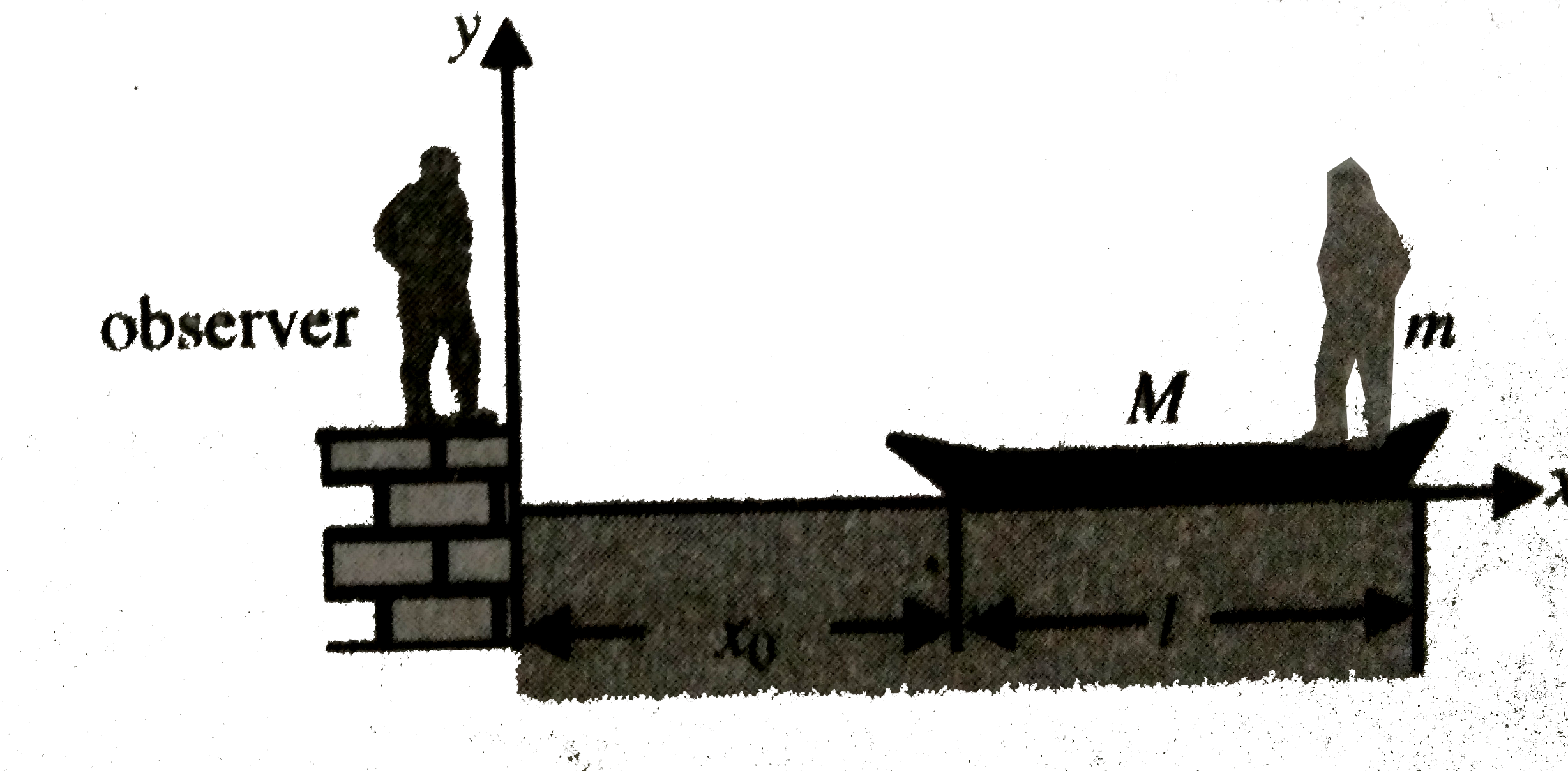
a. acceleration of CM of the system (M+m)
b. acceleration of the man and boat
c. position of man at the time when he reaches to other end of the boat
d. frictional force
e. work done by friction on boat.
f. total work done by friction.
g. velocities of man and boat when the man reaches other end of the boat.
h. work down by man
View SolutionTwo men, of masses 60 kg and 80 kg are sitting at the ends of a boat of mass 60 and length 4 m. the boat is stationary. If the men now exchange their position, then:
View Solution
Knowledge Check
A boy of mass m is standing at one end of a boat of mass M and length l. The boy walks to the other end, the displacement of the
ACM is zeroBboat is mlM+mCboy is mlM+mDboat is mMlA boy having a mass of 40kg stands at one end A of a boat of length 2m at rest. The boy walks to the other end B of the boat and stops. What is the distance moved by the boat? Friciton exists between the feet of the boy and the surface of the boat. But the friction between the boat and the water surface may be neglected. Mass of the boat is 15kg.
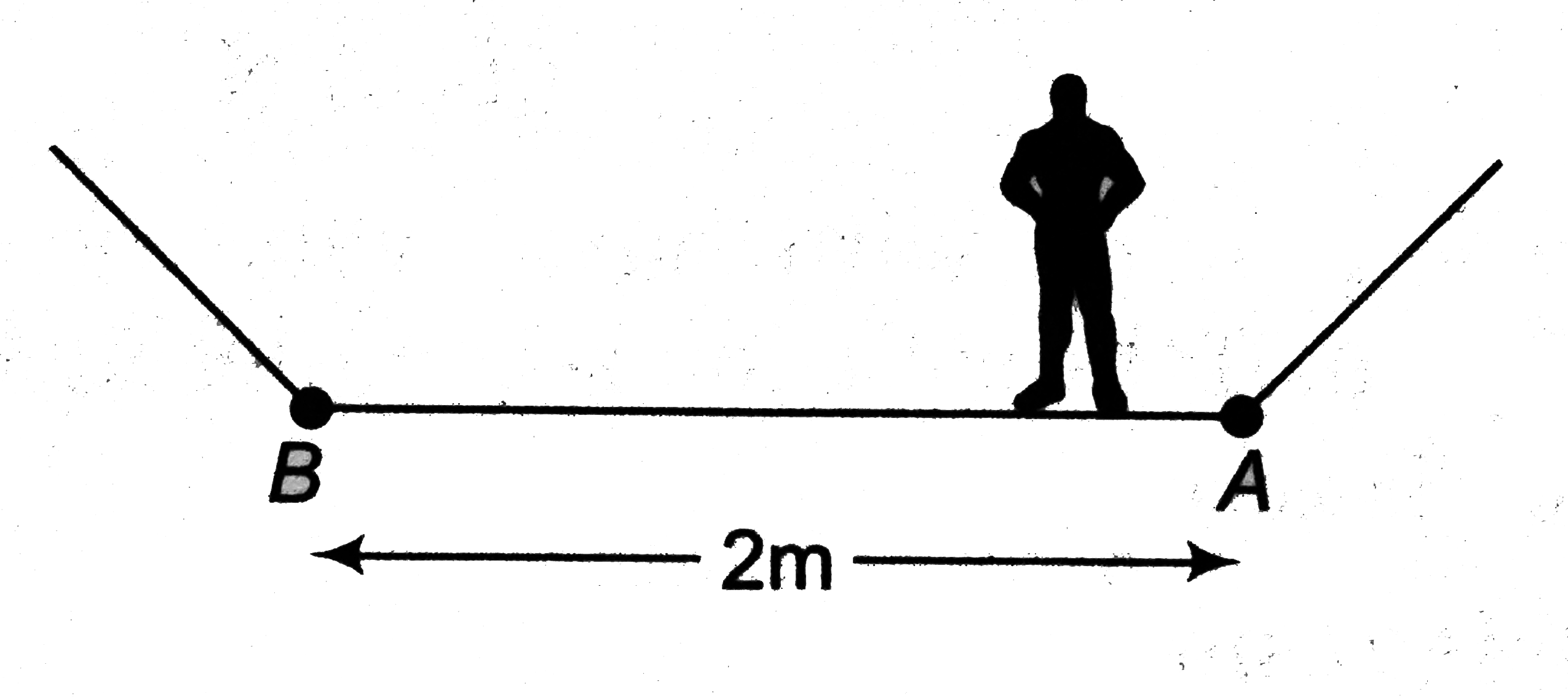 A(a) 0.49mB(b) 2.46mC(c) 1.46mD(d) 3.2m
A(a) 0.49mB(b) 2.46mC(c) 1.46mD(d) 3.2mChain of mass M length L kept on rough sphere. μ is coefficient if friction between sphere and chain F is minimum force required to slide chain
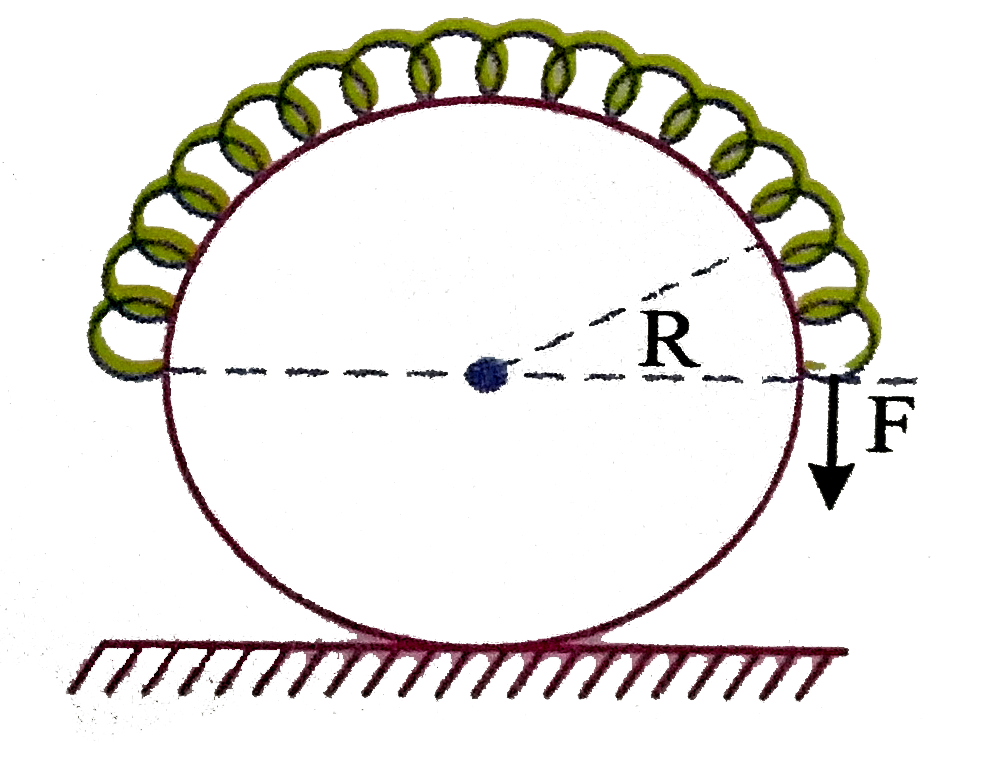 A2μMgπBμMgC<2μMgπD2μMg
A2μMgπBμMgC<2μMgπD2μMg
A person P of mass 50 kg stands at the middle of a boat of mass 100 kg moving at a constant velocity 10 m/s with no friction between water and boat and also the engine of the boat is shut off. With what velocity (relative to the boat surface) should the person move so that the boat comes to rest. Neglect friction between water and boat.
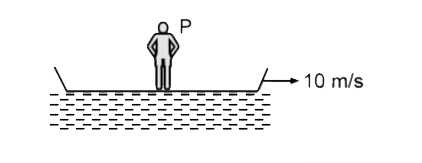
View Solution(i) Find the acceleration of the centre of mass of two particle approaching towards each other under their own grabitational field.
(ii) A boy of mass 30 kg is standing on a flat boat so that he is 20 meter from the shore. He walks 8 m on the boat towards the shore and then stops. The mass of the boat is 90 kg and friction between the boat and the water surface is negligible. How far is the boy from the shore now ?
View SolutionA plank of mass 3m is placed on a rough inclined plane and a man of mass m walks down the board. If the coefficient of friction between the board and inclined plane is μ=0.5, the minimum acceleration of does not slide is:
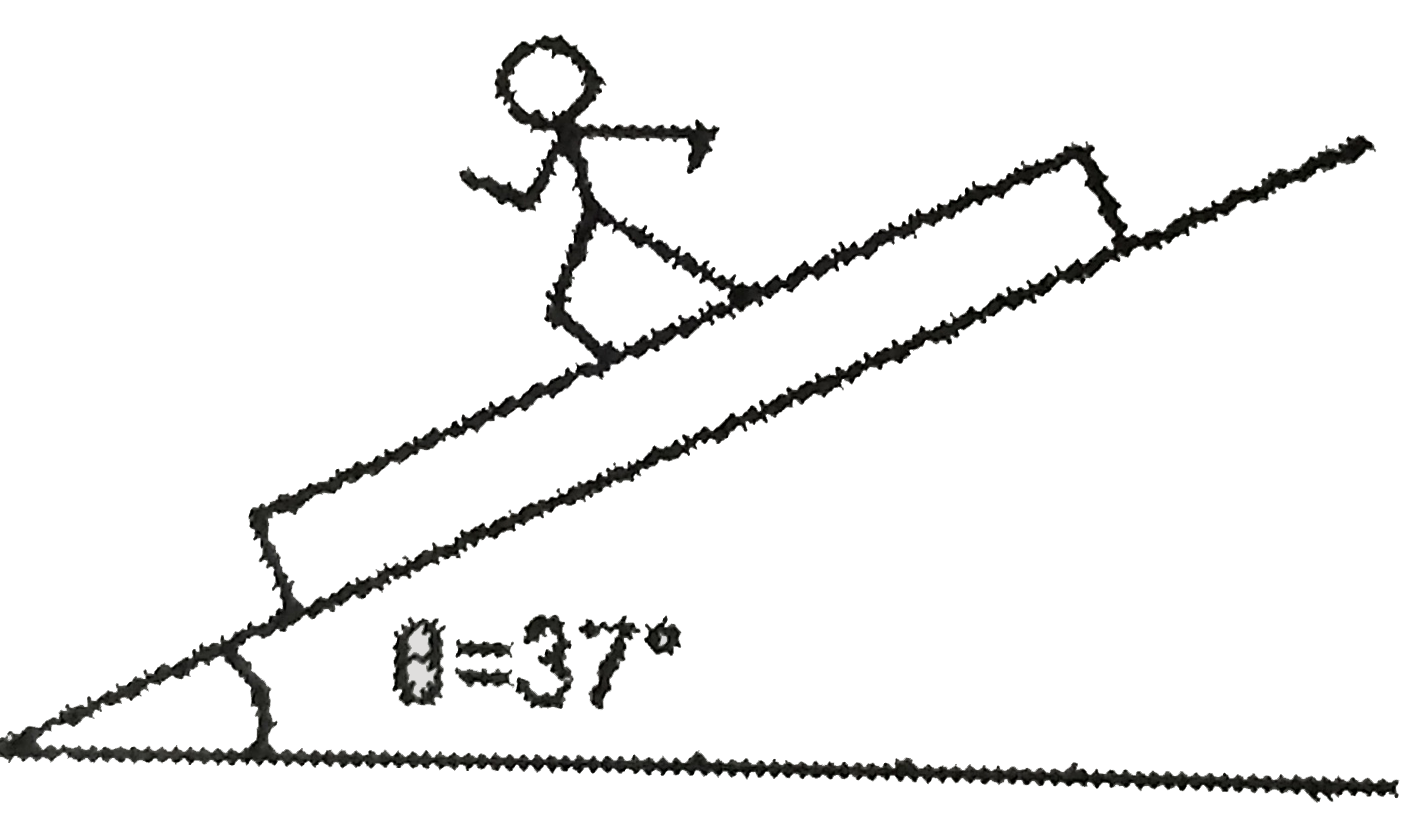
View SolutionA plank of mass 3m is placed on a rough inclined plane and a man of mass m, the coefficient of friction between the board and inclined plane is μ=0.5, the minimum acceleration of man so that plank does not slide is :
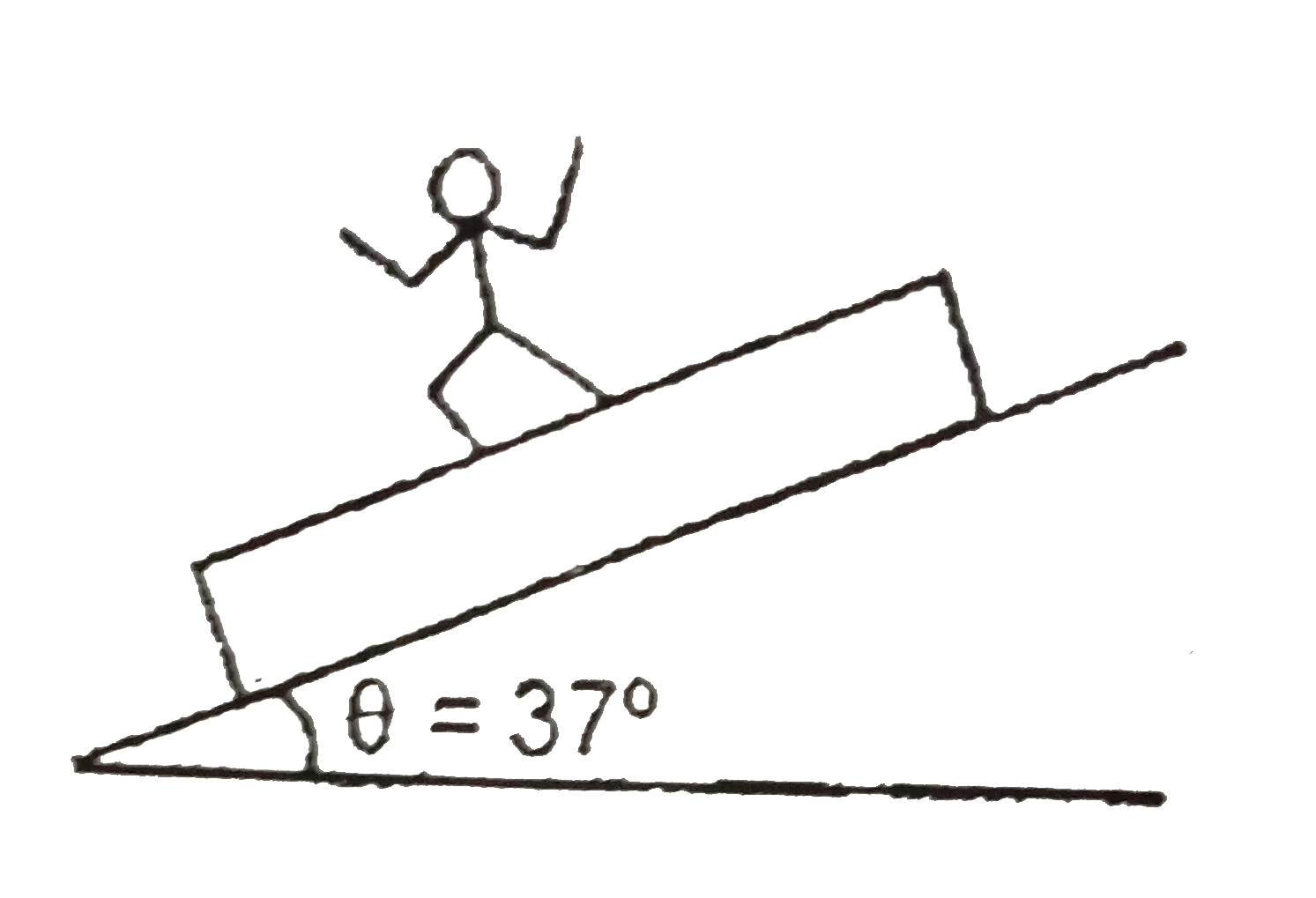
View SolutionTwo men of masses 40 kg and 20 kg are standing on a boat of mass 100 kg. Length of boat is 20m. Neglect the friction between water and boat. Find the displacement of the boat when both the persons reach at middle of boat.
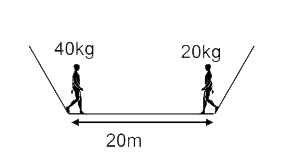
View Solution
